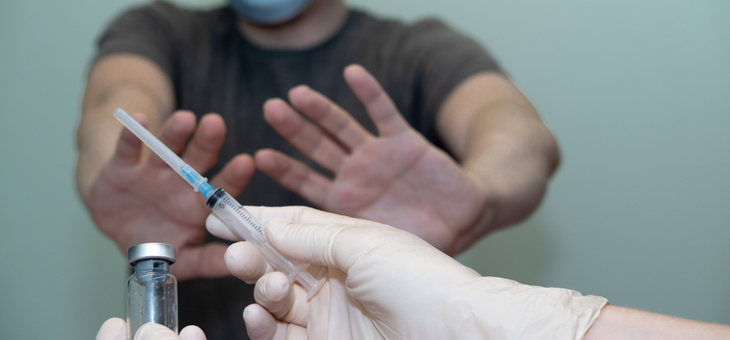NSW started easing its restrictions for fully vaccinated people on Monday, but the state’s Premier, Gladys Berejiklian, suggested it was unlikely unvaccinated people would be released from lockdown even as more ambitious targets were reached.
Ms Berejiklian, who gave a press conference on Monday despite announcing last week she would no longer be giving daily updates, said that while plans to ease restrictions when an 80 per cent double vaccination rate had been reached were not finalised, they were unlikely to include the unvaccinated.
As of Monday, fully vaccinated people in NSW outside the 12 local government areas of concern in Sydney were able to gather outdoors in groups of up to five people (including children), in what was termed ‘picnic day’.
Read: Why older adults are more susceptible to severe COVID
“Once we get to 70 per cent double-dose vaccination, we have outlined the freedoms that exist for vaccinated people,” Ms Berejiklian said. “However, don’t assume that at 80 per cent double-dose vaccination that unvaccinated people are going to have all those freedoms.
“I want to make that point very clear. The government is yet to finalise its plans in relation to what happens at 80 per cent double dose.
“Our key message is – come forward and get vaccinated because once we start opening up at 70 per cent double-dose vaccination, the higher the rate of adult coverage, of people 16 and over, that are vaccinated, the better it is for all of us.
Read: Long-awaited roadmap to freedom released
“I want to stress again – for those of you who choose not to be vaccinated, that’s your choice, but don’t expect to do everything that vaccinated people do even when we hit 80 per cent.”
Ms Berejiklian explained that the limits on the freedom of movement of the unvaccinated, when a community vaccination of eligible adults was above 80 per cent, would be a result of both government policy and private businesses being allowed to refuse service to unvaccinated people.
“I don’t want people to think they can sit back, let everybody else do the hard work and then turn up when it is 80 per cent and get everything else that vaccinated people are. That’s not the right message,” Ms Berejiklian said.
Read: Experts say COVID likely to stymie family gatherings this Christmas
“And it won’t only be a government decision. A private business might choose only to welcome patrons who are vaccinated. An airline might say you can only fly with us if you’re vaccinated.”
She said that because so many of the decisions would be in the hands of businesses, she could not provide accurate guidelines for when things might get better for those who choose not to get vaccinated.
“It might not even be a decision for government,” Ms Berejiklian said. “Private businesses, private organisations, may make the decision that they don’t want to welcome unvaccinated people and we’re seeing in places across Europe and North America where private businesses, private entities, are taking matters into their own hands. That’s their prerogative.
“People who want not only the safety of their staff and the safety of their patrons, but also for business continuity reasons. Because obviously an outbreak of a case in any particular location at any time might mean that business has to shut its doors for a period of time. And that is a business risk as well as a health risk.”
The warning from NSW is counter to the situation in the United Kingdom, where Prime Minister Boris Johnson abandoned the introduction of domestic vaccine passports as his government announced that it would be unlikely the country would ever return to lockdowns.
The Conservative Party in the UK objected to the idea of vaccine passports as an unacceptable burden on businesses and an infringement on human rights.
The UK had nearly 30,000 new cases on Sunday and 56 deaths.
In other COVID news, the Health Services Union (HSU) is calling for an extension for the deadline for workers in the aged care industry to be vaccinated, amid calls it will leave the sector incredibly short-staffed.
This Friday is the deadline that was set for workers in the industry to receive at least one COVID vaccination shot, and while 90.8 per cent of the sector has met the deadline already, HSU federal president Gerard Hayes called for the deadline to be extended by between two weeks and a month.
Mr Hayes told The Guardian the extension was needed because of the workforce pressures in the sector.
“They cannot afford to have 5 to 10 per cent of aged care staff not at work,” Mr Hayes said. “I think the concern I have always had, and as the aged care royal commission showed, there are attrition and retention issues in aged care already.
“It is already subject to workforce shortages as we all know.”
Around 70.5 per cent of the aged care workforce are fully vaccinated, with that figure expected to continue to climb in the coming days.
Have you had your vaccinations yet? Will you get you shot to get out of lockdown? Why not share your thoughts in the comments section below?
If you enjoy our content, don’t keep it to yourself. Share our free eNews with your friends and encourage them to sign up.

